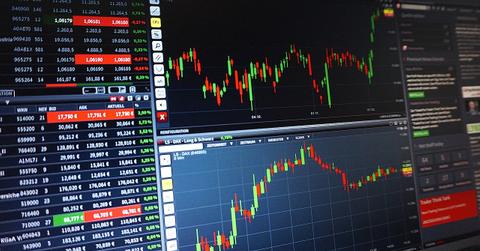What Is Stock Liquidity and Why Should You Care About It?
As an investor, you have several considerations to make before buying into a stock. Stock liquidity is one of them. What is stock liquidity, you ask?
Aug. 17 2020, Updated 7:28 a.m. ET

Before investing in a stock, investors take various things into consideration, such as growth, return, risk, and liquidity. The liquidity of a stock is important to consider before making an investment decision, as it determines how accessible your investment is and how easily and efficiently it can be converted into cash.
What does stock liquidity mean?
Liquidity in stocks is defined as the degree to which a stock can be bought or sold without impacting its price. Stocks with higher liquidity will have sufficient outstanding shares and adequate demand and supply. Simply put, it’s the number of buyers and sellers present in a market.
It's safer to invest in stocks with higher liquidity. Moreover, securities with low liquidity usually have a higher risk premium, mainly to compensate for higher risk. Liquidity is one factor viewed favorably by investors. Therefore, illiquid stocks usually trade at a discount to their counterparts with high liquidity.
What does high liquidity mean in stocks?
High liquidity in stock means a higher trading volume. A stock is considered highly liquid if it has:
- Traded an average of at least 100 times per trading day.
- An average trading value of at least $1 million per trading day.
Stocks trading on major stock exchanges are usually quite liquid. Large-cap stocks Tesla, Apple, Alphabet, and Nvidia are highly liquid.
Stocks with a market capitalization of $10 billion or more are considered large-cap stocks, while those with a market cap between $2 billion and $10 billion are mid-cap stocks. These categories of stocks are usually very liquid. Meanwhile, small-cap stocks, which have a market cap between $300 million and $2 billion, are sometimes quite liquid as well, but their liquidity is usually lower than that of large- and mid-cap stocks.
How to measure liquidity in stocks
One measure used to gauge the liquidity of an asset or stock is the bid-ask spread, the difference between what the highest price a buyer is willing to pay versus the lowest price a seller is willing to accept. A transaction occurs when a bid and ask match. A large bid-ask spread usually implies illiquid security with a low trading volume, and vice versa.
Average daily traded volume is another measure of stock liquidity. The higher the volume, the higher the liquidity. This measure will also be relative to the investor's position in the stock. If, for example, you are trying to trade 10 percent or more of the average traded volume of a stock, then you might cause the market for that stock to move, thereby not getting a good deal in buying or selling it. However, it's usually not easy to move large- and mid-cap stocks easily.
Share turnover, another measure of stock liquidity, is calculated by dividing the total number of shares by the average number of shares outstanding during a period. A higher share turnover means higher liquidity, and vice versa.
Why is liquidity in stocks important?
Liquidity in stocks is important, as it determines how quickly you can open or close a position. Also, high liquidity implies lower risk, as there is a higher certainty of someone taking the other side of the trade.
